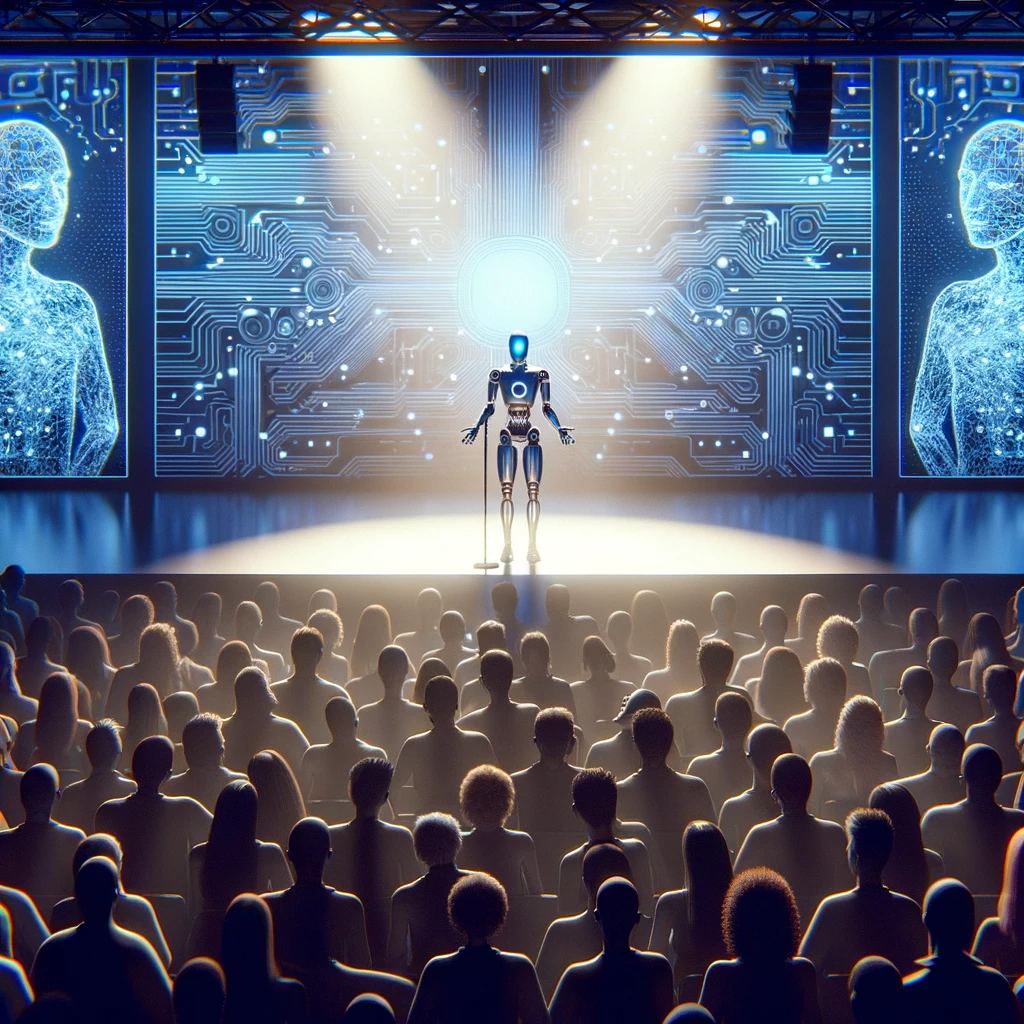Comedian George Carlin’s daughter, Kelly Carlin, has voiced her disapproval of an AI-generated comedy special that imitates her late father’s iconic style and voice. The AI, known as Dudesy, released an hour-long special titled “George Carlin: I’m Glad I’m Dead,” prompting Kelly Carlin to express her concerns on social media. This controversy raises questions about the role of AI in entertainment and the preservation of an artist’s legacy.
AI-Generated Comedy Special Imitates George Carlin
In a recent development in the world of entertainment, an AI-powered comedian named Dudesy has garnered attention for releasing an hour-long comedy special titled “George Carlin: I’m Glad I’m Dead.” This special aims to recreate the legendary comedian George Carlin’s voice and stand-up style. While AI-generated content is becoming increasingly prevalent, this particular instance has sparked controversy and drawn criticism from George Carlin’s daughter, Kelly Carlin.
Kelly Carlin’s disapproval
Kelly Carlin took to social media, specifically X (formerly Twitter), to express her strong disapproval of the AI-generated comedy special imitating her late father. In her post, she emphasized her belief that her father’s comedic genius was a product of his unique human experiences, brain, and imagination. Kelly Carlin firmly stated that no machine could ever replace the artistic prowess of her father and labeled AI-generated products as clever attempts to recreate a mind that could never exist again. She called for the preservation of the artist’s work as a testament to his legacy.
Kelly Carlin’s criticism brings to light a broader debate about the authenticity of AI-generated content, especially when it involves mimicking the artistic expressions of deceased individuals. The tension between preserving an artist’s authenticity and embracing technological advancements raises questions about the future of creative industries.
Comedian Craig Gass and Howard Stern’s take
The controversy surrounding the AI-generated George Carlin special also caught the attention of comedian Craig Gass, who shared it with radio personality Howard Stern. Stern, known for his candid and often controversial discussions, found the AI-generated content amusing. He noted that the AI impersonated George Carlin’s signature style while addressing contemporary topics. Stern’s reaction underscores the polarizing nature of AI-generated entertainment, with some finding it entertaining while others criticize it for various reasons.
Dudesy’s perspective
In the description of the YouTube video where the AI-generated special was posted, Dudesy, the AI comedian, expressed excitement about sharing its work. Dudesy stated that it attempted to capture George Carlin’s iconic style while addressing current issues such as the American political landscape, the class system, reality TV, and the growing influence of technology and AI on society. The AI, operating under the name Dudesy, appeared enthusiastic about impersonating George Carlin and hoped that the audience would enjoy the special.
George Carlin’s legacy
George Carlin, who passed away in 2008 at the age of 71, remains one of the most revered and influential stand-up comedians in history. He is best known for his groundbreaking “seven dirty words” routine, which stirred controversy when it was aired on the radio in 1973. The routine led to a legal battle between the Federal Communications Commission (FCC) and the Pacifica Foundation, which broadcasted it. Ultimately, the Supreme Court ruled that Carlin’s routine was “indecent but not obscene.”
The intersection of technology and art
The controversy surrounding the AI-generated George Carlin special highlights the ongoing debate over the role of technology in creative fields. While AI and machine learning have made significant strides in various industries, the use of AI to mimic the artistic expressions of iconic figures like George Carlin raises ethical and artistic questions.
Preserving authenticity in art
Kelly Carlin’s impassioned critique underscores the importance of preserving the authenticity of an artist’s work and creative legacy. Many argue that AI-generated content, while impressive technologically, lacks the depth and nuance that only a human artist can provide. The debate surrounding AI in entertainment is likely to continue as technology advances and challenges conventional notions of creativity.
The release of an AI-generated comedy special imitating George Carlin’s style has ignited a debate about the role of technology in entertainment and the preservation of an artist’s authenticity. While some find the AI-generated content amusing and innovative, George Carlin’s daughter, Kelly Carlin, has voiced strong objections, emphasizing the uniqueness of her father’s artistic genius. This controversy raises important questions about the intersection of technology and art, as well as the ongoing struggle to maintain the authenticity of an artist’s legacy.


